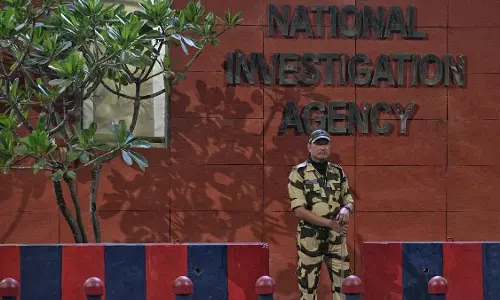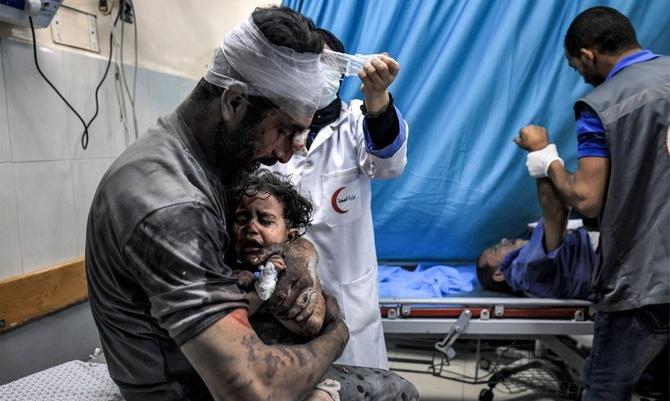
Saudi leads with millions of dollars in aid as Arab world unites for embattled Gaza
text_fieldsThe destruction in Gaza resulted from the relentless Israeli bombardment that nearly flattened the region, prompting a concerted effort from the Arab world to deliver essential medical and other humanitarian aid. This effort is seen as a consolation for the embattled Gaza.
In the month-long conflict between Israel and the Palestinian militant group Hamas, hospitals, clinics, and mortuaries in the Gaza Strip are grappling with overwhelming challenges.
Despite the difficulties in humanitarian access, several Arab nations, including Saudi Arabia, the UAE, Jordan, and Egypt, have pledged millions of dollars in assistance. The aid is aimed at addressing the urgent medical needs of civilians affected by the conflict.
In an effort to address the crisis, Saudi Arabia is set to host an emergency session of the Arab League followed by a meeting of the Organization of Islamic Cooperation. The goal is to mobilize influential Arab countries to exert pressure on Israel through political advocacy at the UN and direct engagement with Washington.
Saudi Arabia has been actively supporting Palestinian civilians through initiatives like the Sahem fundraising portal, which has received significant contributions exceeding $108 million within five days of its launch.
The King Salman Humanitarian Aid and Relief Center's Public Relief Campaign for Palestinian People in Gaza specifically aims to assist those suffering from the Israeli attacks.
Crown Prince Mohammed bin Salman of Saudi Arabia has condemned the attacks on civilians in Gaza as "heinous" and warned of "dangerous repercussions" in the event of a regional escalation. Multiple Saudi officials have called for an immediate ceasefire to address the escalating humanitarian crisis.
The humanitarian situation is exacerbated by limited access for humanitarian aid via Egypt's Rafah border crossing. Israel's refusal to open the Karm Abu Salem crossing further complicates the delivery of essential supplies. Humanitarian efforts have also been hindered by repeated bombings of the Rafah crossing, with a recent attack on a Red Cross humanitarian convoy carrying urgent aid to Gaza.
Even before the current conflict, the UN highlighted the severe impact of Israel's 17-year blockade on Gaza's economy, leaving approximately 80% of its inhabitants reliant on external humanitarian aid.
As the conflict persists and bombardment continues, the health system in Gaza is rapidly deteriorating, with thousands of patients left without access to essential medical treatment.
Major hospitals are facing critical shortages, with some on the verge of shutdown. Al-Quds Hospital issued a warning about running out of fuel, while Al-Shifa Hospital, the largest in Gaza, is grappling with severe shortages following the destruction of its solar panels in an Israeli strike.
The Palestinian Ministry of Health has reported that half of Gaza's major hospitals and 60% of the Strip's health facilities are already out of service.
Those still functioning are operating with far less than the minimally required equipment, fuel, and medical supplies. The situation is described as unprecedented in the history of Israeli wars on Gaza and poses a grave threat to the well-being of the population.






















